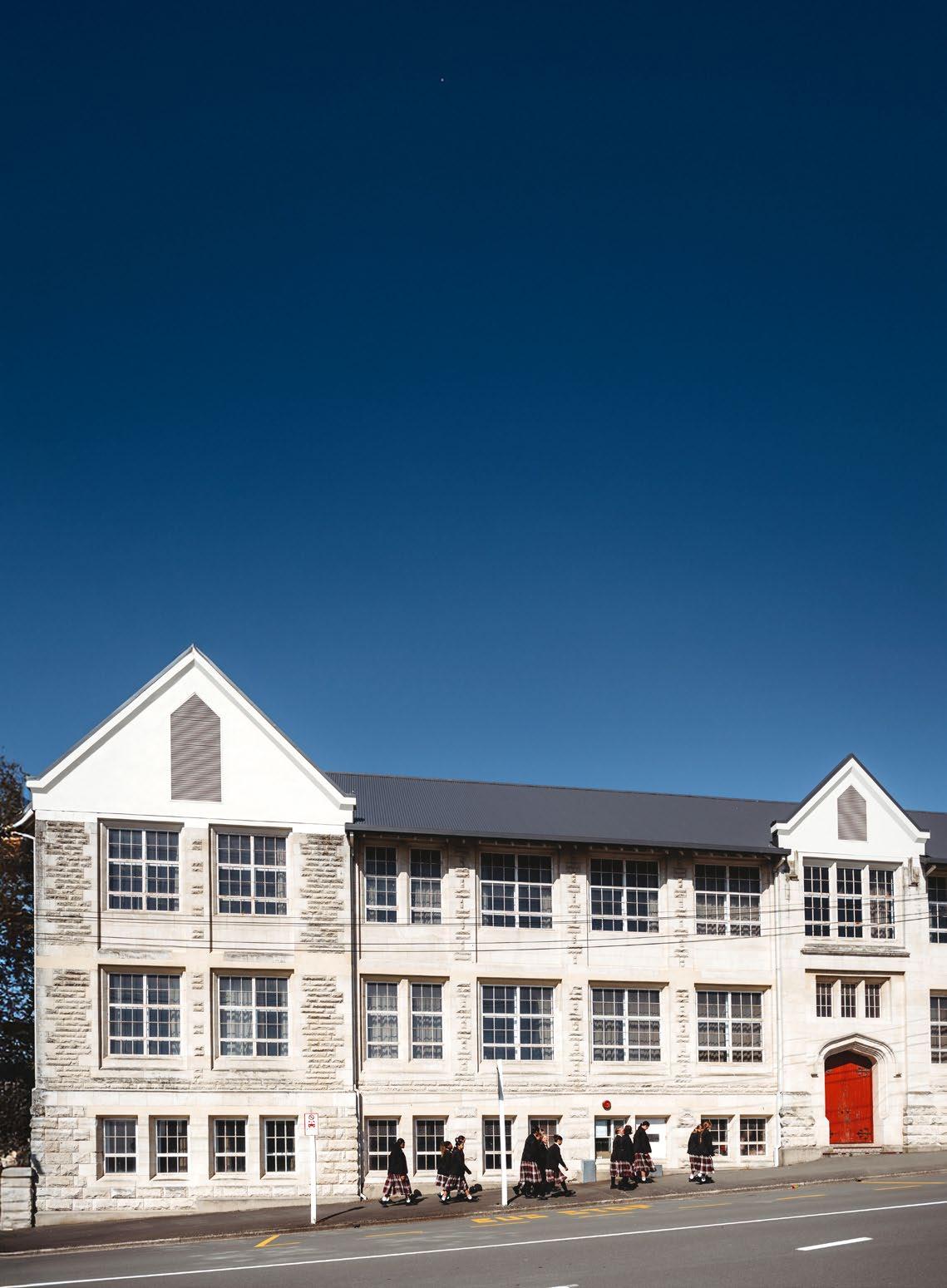
6 minute read
Māori teacher aide ready to empower the next generation
After completing an apprenticeship in youth work, an Oamaru teacher aide has reconnected with her Māori culture and heritage to support rangatahi to succeed in the classroom. Alora Hill shares her inspiring journey from a once-troubled teenager who didn’t do very well at school, to making an impact at Waitaki Girls’ High School.
Alora Hill not only thrives in her role as teacher aide but stands tall in her identity, grounded in her culture and brimming with confidence.
Once a teen who left school at 15 without an NCEA qualification, Alora now spends her days back in the classroom helping rangatahi at Waitaki Girls’ High School.
After successfully completing an apprenticeship in youth work through Careerforce, Alora felt ready to reconnect with her whakapapa. This deepened her sense of purpose and meant her impact in the classroom now goes far beyond academic support.
“I’ve developed an interest in Māori achievement and the factors that influence it,” says Alora.
Her own studies highlighted how important it is to feel culturally connected and represented, especially in the learning environment.
“While I’m committed to supporting the success of all students, my studies have sparked a real passion for Māori achievement in particular.”
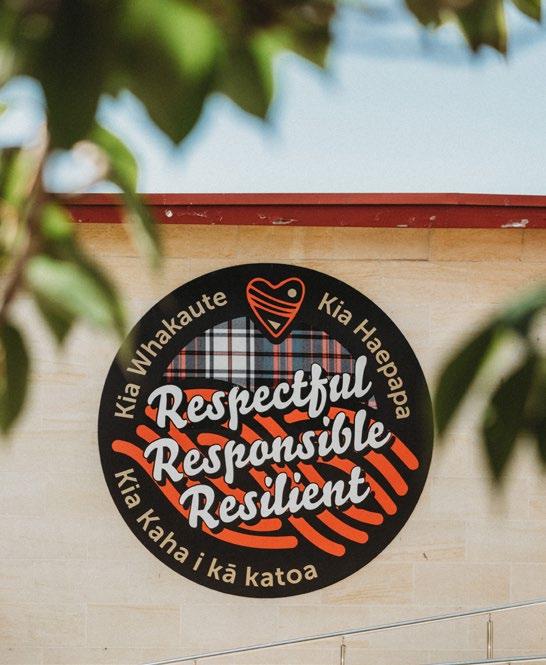
An advocate in the classroom
Alora works alongside a team of teacher aides and reports to a head of learning. She says this supportive team is essential for a role that can be heavy and challenging, yet rewarding and fulfilling.
“We look out for each other. I’m also fortunate to work alongside some amazing teachers who value my input and professional advice. We often collaborate closely to adapt lesson plans and approaches to best suit the needs of individual students and classes.”
Her passion is to help ākonga with their mental, emotional and spiritual health and wellbeing to give them the best chance to engage and excel in their education.
“As a teacher aide, I work as an advocate for the students, listening to them, making sure they feel heard and are getting the support they need. We work very closely with our students and, because of this, we can often be the first people to pick up on their needs.”
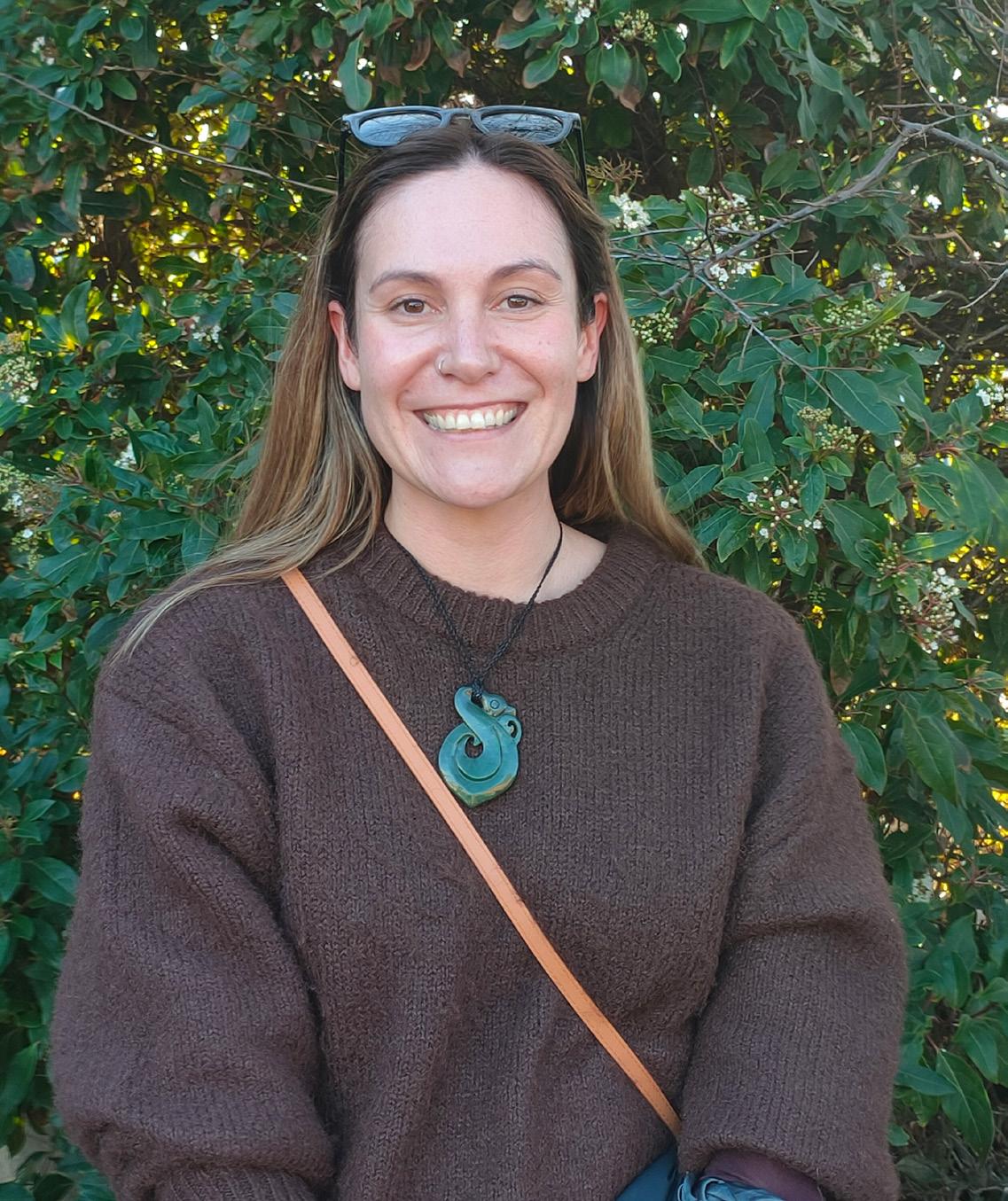
Removing barriers to confidence and resilience
Alora says it’s not unusual for ākonga to come into class distressed or anxious.
“We figure out what they need, calm them down or help teach them some self-soothing techniques, helping them to focus on their work and self-manage in the future. If we notice any learning difficulties, we can pass that information on so the student can receive the best support to achieve academically.”
She helps ākonga stay on task, understand their work, regulate in the classroom, catch up if they have missed lessons, and helps remove any other barriers to their learning.
A big part of that is helping rangatahi feel cared for and ready to learn, says Alora. Many face significant challenges, “and it can be a game-changer for them to know someone believes in their potential”.
“I often see students determined to have a negative view of school, and it’s nice when I get to be a part of changing that perspective.”
One of the most rewarding parts of her job is watching ākonga achieve something they once thought was impossible, “and seeing their face light up and be full of pride”.
Alora’s role covers junior and senior classes across subjects including English, maths, science or food technology and even yoga and meditation. She also works with ākonga one-on-one or in small groups, offering more personalised support.
“I support our rangatahi to build their confidence and resilience, which affects them both in and out of the classroom. It’s important to me that the students I work with feel seen, heard, supported and valued. I advocate strongly for them, especially our more at-risk youth.”
Alora has supported rangatahi who once struggled to manage an hour-long class. With time and guidance, they can now sit exams and succeed.
On-the-job learning a perfect fit
The Careerforce Apprenticeship in Youth Work is a 21-month on-the-job programme, designed to enhance teacher aides’ understanding of students and their socio-cultural contexts and help develop practical skills in communication, goalsetting and cultural awareness.
Alora chose the study to extend herself.
“I thought it would be good to see if I could actually do it because I never believed that I could, but I wanted to progress further in life, so this was a good opportunity to test myself.”
With a young family, learning on the job and at her own pace suited her.
“Working while studying fitted in beautifully with my whole life and all my responsibilities. Sometimes I smashed out the work faster than was needed and then I would give myself a break for a bit as life got busy.”
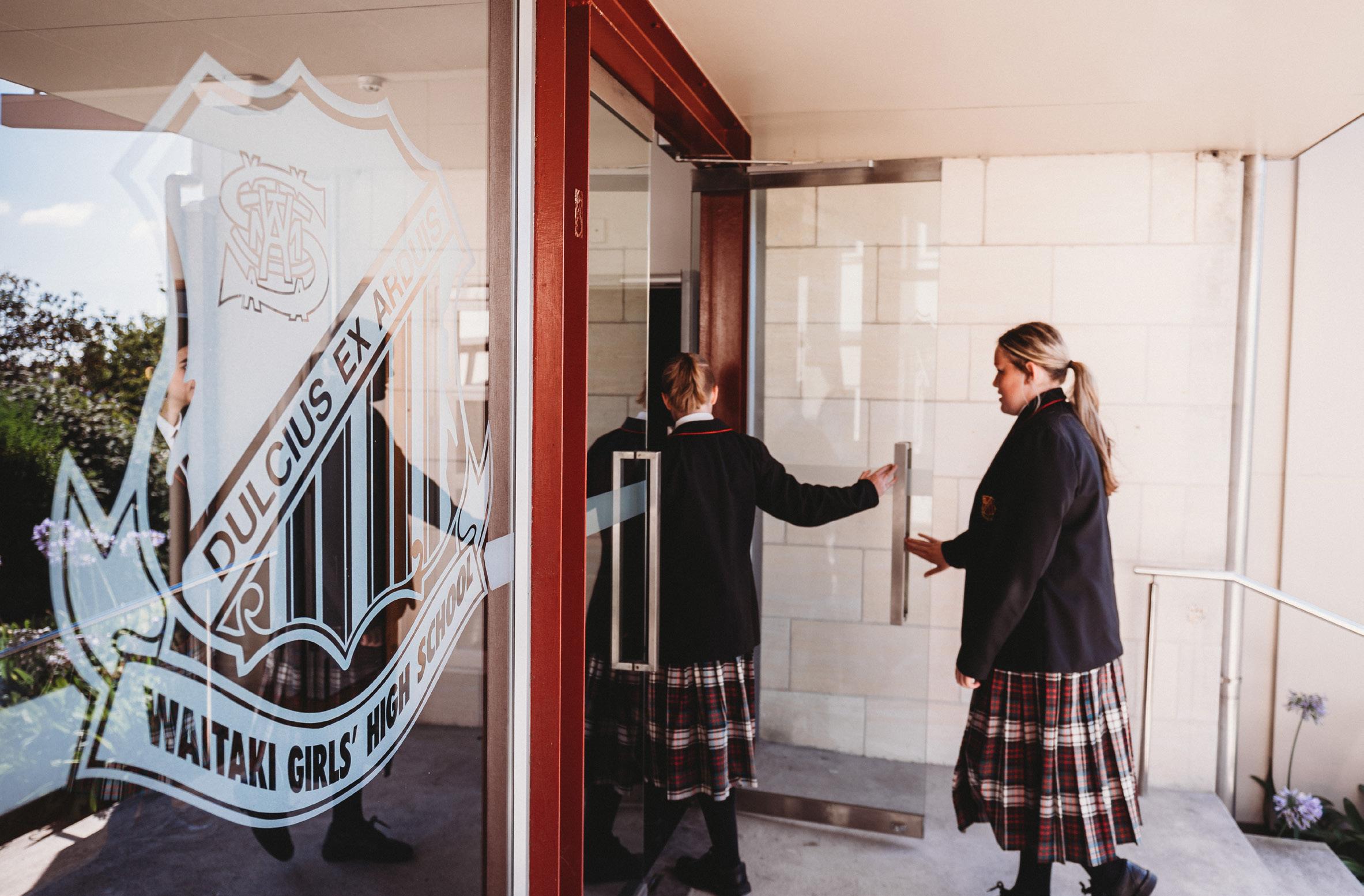
Reconnecting with whakapapa
Alora’s study inspired her to connect with her Māori heritage. “When I started looking at Te Whare Tapa Whā, I realised something was missing in my life. If I hadn’t come across that model in this learning, I wouldn’t have started to reconnect with that side of my culture. It’s had a really big impact on me.”
Alora began to build connections with her estranged whānau “and to focus on the personal growth and healing that came from that journey”.
“There was a module that was all about self-reflection and all about taking care of yourself while you’re taking care of others. I found that was really beneficial. Still to this day, I use those skills inside and outside work.”
New opportunities for growth
Alora often hears from past ākonga and their families who thank her for the time and support she gave them during their school years.
“Many have told me they wouldn’t have stayed in school or achieved what they did without my help. It’s incredibly humbling to know I played such a meaningful role in their lives and I feel genuinely honoured to be a part of my students’ journeys,” she says.
While she still finds her role as a teacher aide deeply fulfilling, Alora is ready to grow further. With the confidence gained through her apprenticeship and a renewed connection to her Māori heritage, she’s begun to explore new possibilities, particularly the idea of combining a teacher aide role with youth work in schools. It’s a direction she believes could have a powerful impact on students.
“That kind of wraparound support would be amazing,” she says. “It really comes down to what schools value and what’s possible in terms of funding, but I’m hopeful. I know it could make a real difference.”
Alora is now seeking her next study opportunity.
“I feel that when the right one comes along, I’m more confident in my ability to engage with it and succeed.”
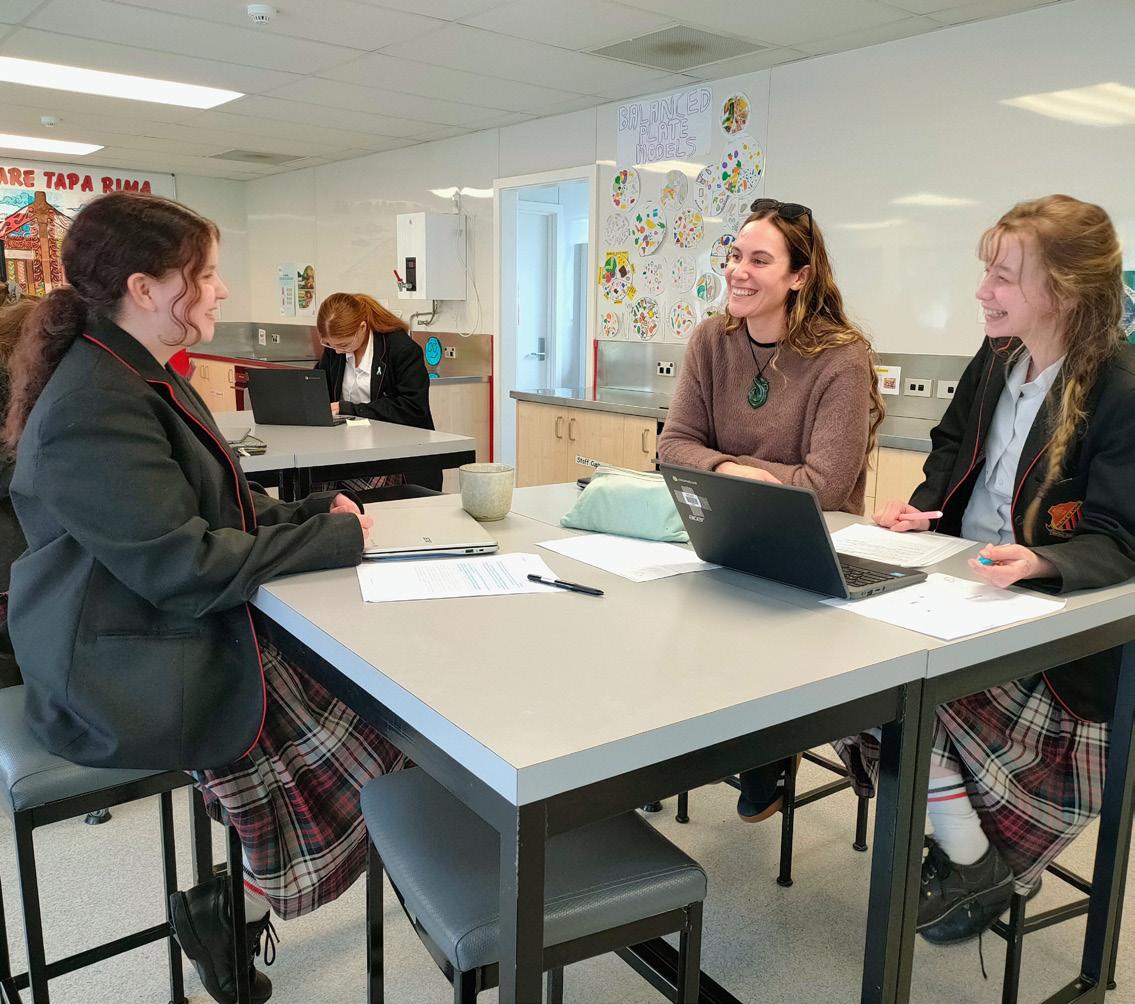
With hands-on support and scholarships on offer to cover costs, Careerforce apprenticeship programmes invest in the professional growth of teacher aides. For more information about apprenticeships for teacher aides, contact Careerforce.










